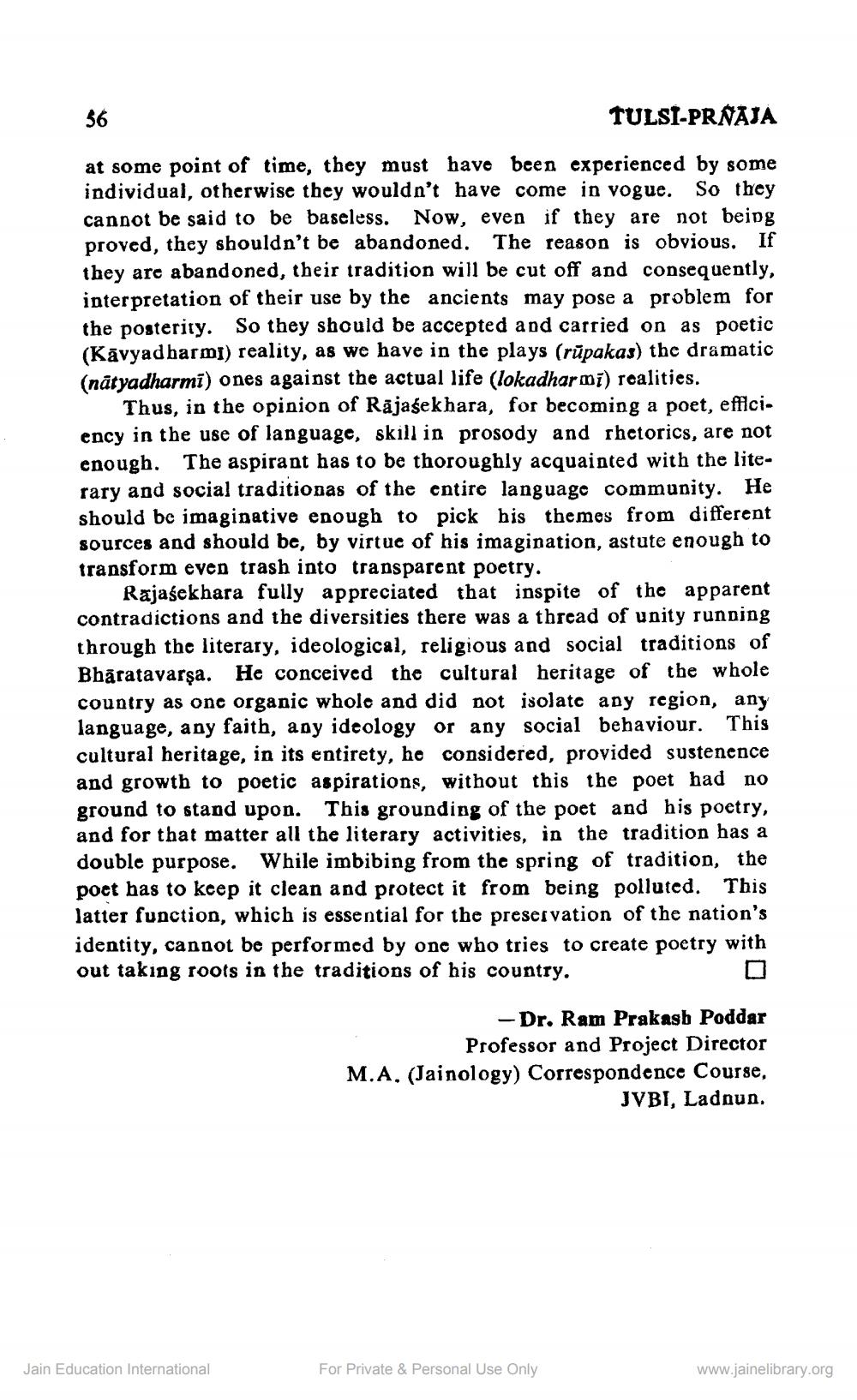________________
36
TULSI-PRNAJA
at some point of time, they must have been experienced by some individual, otherwise they wouldn't have come in vogue. So they cannot be said to be baseless. Now, even if they are not being proved, they shouldn't be abandoned. The reason is obvious. If they are abandoned, their tradition will be cut off and consequently, interpretation of their use by the ancients may pose a problem for the posterity. So they should be accepted and carried on as poetic (Kāvyadharmi) reality, as we have in the plays (rūpakas) the dramatic (nätyadharmī) ones against the actual life (lokadhar mi) realities.
Thus, in the opinion of Rajasekhara, for becoming a poet, efficiency in the use of language, skill in prosody and rhetorics, are not enough. The aspirant has to be thoroughly acquainted with the literary and social traditionas of the entire language community. He should be imaginative enough to pick his themes from different sources and should be, by virtue of his imagination, astute enough to transform even trash into transparent poetry.
Rajasekhara fully appreciated that inspite of the apparent contradictions and the diversities there was a thread of unity running through the literary, ideological, religious and social traditions of Bhāratavarsa. He conceived the cultural heritage of the whole country as one organic whole and did not isolate any region, any language, any faith, any ideology or any Social behaviour. This cultural heritage, in its entirety, he considered, provided sustenence and growth to poetic aspirations, without this the poet had no ground to stand upon. This grounding of the poet and his poetry, and for that matter all the literary activities, in the tradition has a double purpose. While imbibing from the spring of tradition, the poet has to keep it clean and protect it from being polluted. This latter function, which is essential for the preservation of the nation's identity, cannot be performed by one who tries to create poetry with out taking roots in the traditions of his country.
- Dr. Ram Prakasb Poddar
Professor and Project Director M.A. (Jainology) Correspondence Course,
JVBI, Ladnun.
Jain Education International
For Private & Personal Use Only
www.jainelibrary.org




